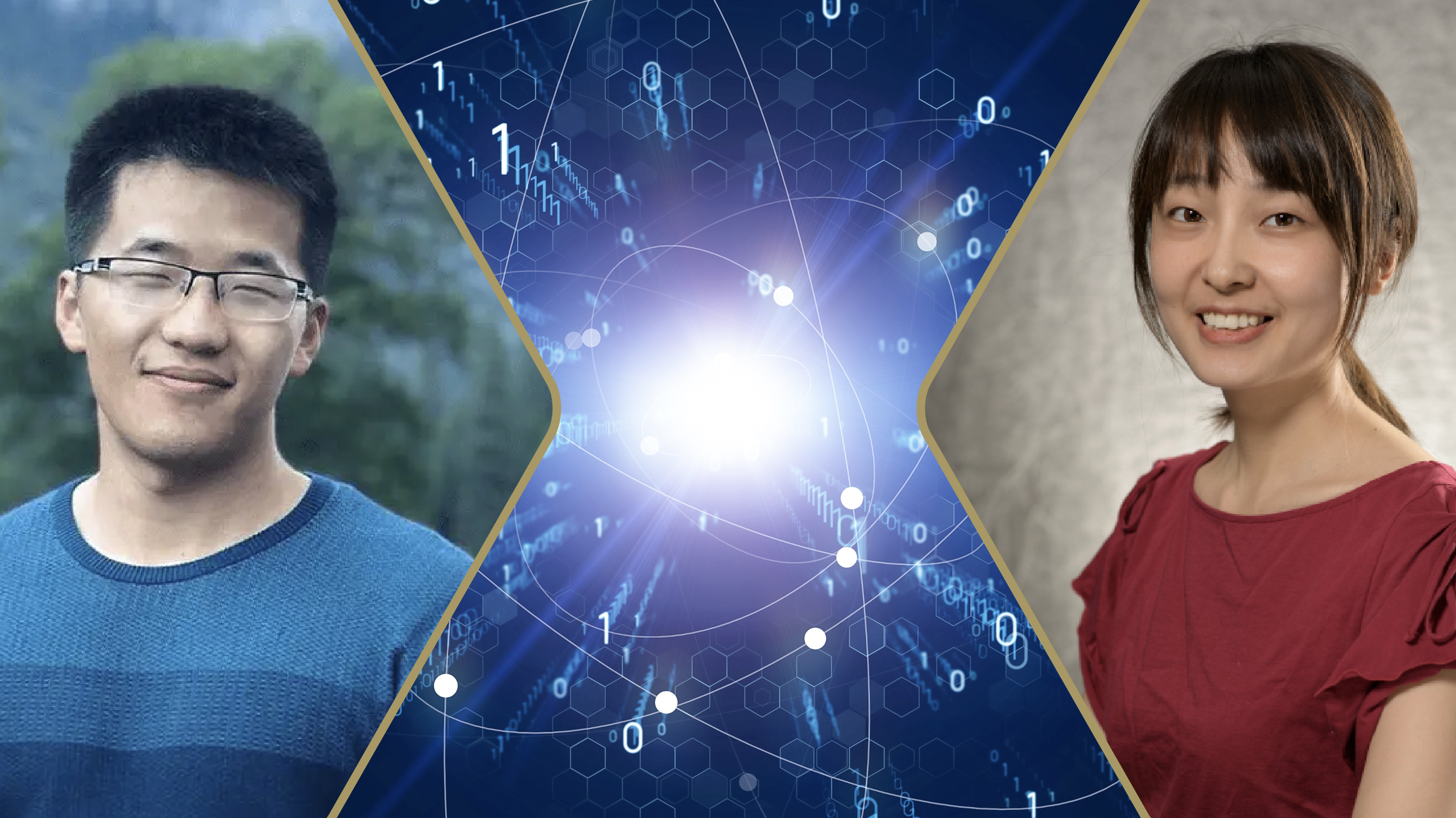
The research teams will develop an ultra-fast field-programmable gate array system and robust learning algorithms.
The U.S. Department of Energy (DOE) announced $16 million for fifteen projects that will leverage the power of artificial intelligence and machine learning (AI/ML) to accelerate scientific discovery within the realm of nuclear physics. The fifteen projects were announced in August and will work to advance understanding of atomic structure and the nature of matter.
Among the select group of researchers involved in a specific project are professors Cong “Callie” Hao and Pan Li in the Georgia Tech School of Electrical and Computer Engineering (ECE).
Hao and Li will play a pivotal role in the "Intelligent Experiments Through Real-time AI: Fast Data Processing and Autonomous Detector Control for sPHENIX and Future EIC detectors" project; a $2 million endeavor being led by Ming Xiong Liu of the Los Alamos National Laboratory (LANL).
“I am thrilled to see how our achievements in computer architecture research can have cross-disciplinary impact on high-energy physics experiments, extending well beyond mere academic papers and hardware prototypes,” said Hao. “We are highly motivated and proud to tackle real-world problems by offering solutions that are both intelligent and practical.”
Hao and her research team will work to furnish an ultra-fast field programmable gate arrays (FPGA) system for particle detection and tracking in high-energy physics experiments. The system will be equipped with an automated design flow that eliminates the need for manual intervention. Achieving this necessitates sophisticated hardware optimizations, coupled with algorithmic innovations, according to Hao.
Li and his team will contribute to the development of robust learning algorithms via domain adaptation methods, aiming to address the online shift of the beam point of particle collisions.
All projects are supported by the DOE Office of Science, Nuclear Physics Program, and were selected through a rigorous and competitive peer review process. According to the DOE press release, the fifteen projects will be conducted by researchers at eight DOE national laboratories and 22 universities. Projects will include the development of deep learning algorithms to identify a unique signal for studying physics of fundamental symmetry in extremely rare nuclear decays that if observed would demonstrate how our universe could have become dominated by matter rather than antimatter.